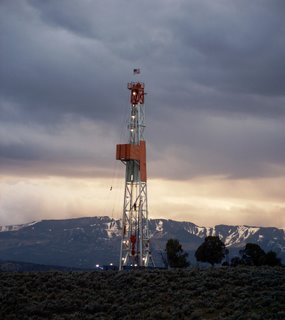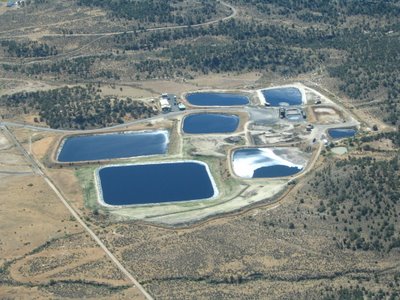With the elections over, Colorado has found itself with the first Democratic Governor in nearly a decade, Bill Ritter. Rocky Mountain Clean Air Action could care less about whether Colorado's new Governor is a Democrat or a Republican. As a nonpartisan clean air and health advocacy group, our only concern is how Ritter's election could affect the air that our families breathe. So, how might we fare with Ritter?
Ritter's stated campaign position has been and continues to be that Colorado's air quality must be protected. His "New Economy" proposal calls for an emphasis on developing renewable energy resources, particularly in rural Colorado communities, as well as increased energy conservation and efficiency. His proposal calls for "responsible" development of fossil-fuel resources, which includes protection of air quality.
Protecting clean air, in fact, seems to be a consistent theme throughout much of Ritter's stated positions. However, while Ritter's general statements seem encouraging, we know little of how he may respond to Colorado's specific and pressing air quality issues.
For example, how will Ritter respond to the increased push to mine and mill uranium in Colorado, a potential major source of
radioactive air pollution? How will Ritter respond when companies like CEMEX, which operates a cement plant near Lyons,
illegally release toxic air pollutants into our air? Will he slap these companies on the wrist, as Governor Owens has done for the last eight years, or will he seek
permanent accountability through steep fines and other penalties? How will Ritter respond to rising smog levels throughout Colorado? Will he wait for problems to get worse, or will he keep problems from happening in the first place? Will he hold the oil and gas industry, which is the source of much of the state's smog forming pollutants, accountable through
strong rules and tough enforcement? Will Ritter stand up to require coal burning power plants to reduce mercury emissions, or will he allow utility companies to continue to
contaminate the water we drink from and play in with this potent neurotoxin? Will Ritter work to reduce toxic air pollution in Colorado's urban communities, or will he simply ignore the fact that
people in Denver are 100 times more at risk of getting cancer from formaldehyde pollution than people in rural communities?
I don't know the answer to these questions, and I don't think Bill Ritter does either. Not yet, anyway. That's because he hasn't been asked.
And that's where we all come in.
In the coming months and years, we're going to need strong action for clean air and community health in Colorado. But to really get the action--and answers--we need to protect ourselves and our families from air pollution, it's going to be up to us to make sure Bill Ritter hears us loud and clear. Ritter has successfully staked out a position that bodes very well for clean air, but it's going to take communication to really make sure his position translates to the action we need, to make sure he follows through with his promises.
Perhaps the better question is, what do you want Ritter's election to mean for clean air? Rocky Mountain Clean Air Action wants it to mean clear skies, healthy children, and accountability among polluters. What do you want it to mean? The future is truly in our hands.
Now let's get out there and make sure our newly elected Governor takes action for the clean air we deserve.







